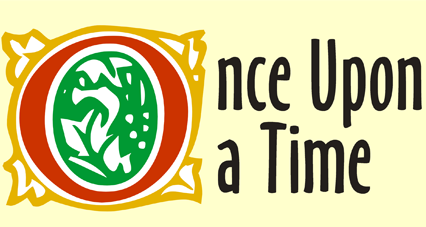Caragh Medlicott finds solace in lockdown in the ever resilient form of the short story.
Quarantine has given rise to a new world of hobbies and pastimes as nations across the globe adjust to life spent at home. Old jigsaw boxes are being pulled down from their shelves, dusted off and upended on coffee tables, sourdough starters bubble in kitchen corners and photos of freshly baked banana bread pad out newsfeeds. Now may seem the opportune moment to power through reading lists and tackle the weighty novels life usually gets in the way of. Yet, in our collective anxiety, attention spans can be skittish and minds prone to runaway. Instead, I’d like to suggest a return to the sweet and brief escapade of the short story.
We all know that stories have a longstanding human history. They stretch back to the crackling campfires of early human tribes. Legends were embellished as they encountered new authors moving down generations, and the self-contained story has been through various states of transmutation ever since. The inception of the written short story coincided with the mass literacy of the middle classes around the nineteenth century. It was a format perfectly suited to the Gothic ghostales which had previously retained a mostly oral tradition. Many famous Victorian novelists were also short story writers, from Henry James to Oscar Wilde. Something about the shorter length of this form has, from its earliest days, empowered writers to find unusual narrative shapes and given license to darker topics.
In the modern world, short stories persist in three key formats: the thematic collections of authors and publishers, literary competitions, and publication in established, famous magazines such as The New Yorker or The Paris Review. Needless to say, short stories do not reach general readership like they used to. While many wonderful and well-curated digital outlets publish short fiction, these stories rarely make it out of the literary sphere. Competitions are an important part of the writing tradition, yet they too lack broad readership, or a readership at all (aside from that of the judging panel).

Good short stories are frequently disquieting. In 2017, ‘Cat Person’ (by previously unknown writer Kristen Roupenian) went viral after it was published in The New Yorker. The short story, with its focus on fraught gendered relationships and the hard-wiring of male privilege, hit an open nerve at the height of the #MeToo movement. In fact, it was the most read piece The New Yorker published that year. Though such cases are a rarity this side of the millennium, short stories have frequently danced along the line of controversy. In 1948, The New Yorker published ‘The Lottery’ by Shirley Jackson, a story now long-standing in the literary hall of fame. At the time, the story elicited a barrage of hate mail and a huge number of cancelled subscriptions.
Sometimes, a short story comes as something of a sucker punch to the reader. They exist in a realm more transient and turbulent than that of the novel. Free from the constraints necessitated by longer narratives they can, and frequently are, surreal, strange, funny and brimming with incomparable wit. The world of short fiction is a wild west for writers, but also a perfect place to showcase talent with a singular, spotlight-like intensity. A chance for wordsmiths to exercise absolute economy and a natural trap for the strangest and most striking shades of an author’s imagination.
The literary canon is a political machine which frequently axes writers deserving of reverence and remembrance. If you look in the right places, there’s a rich modern history of lost gems and nearly forgotten authors. Kathleen Freeman springs to mind, a classicist and Cardiff University alum, who has only recently seen reemergence and recognition for both her short fiction and scholarly work in wartime Wales. For the quarantined Joe Bloggs, dipping a toe into the short story realm may just prove a new and valued form of entertainment to punctuate dragged-out afternoons. From the idiosyncratic and salacious feminist fairytales of Angela Carter to the minute and intense moments of humanity in Raymond Carver, even reading within the canon, there is much to move and delight a reader. For many, the biggest issue is knowing where to start.
In an interview with The Atlantic, editor of The Paris Review, Sadie Stein, notes that magazines were originally paced to match the time of a commute – and that this form is where the written short story originates. Such commutes have now been put on ice, but who amongst us isn’t craving small but complete moments of entertainment and accomplishment? Isn’t that the satisfaction of baking banana bread or finishing a jigsaw? To reach an endpoint. To begin, and to finish, in one sitting; to find something complete, so you can say, done. It’s a type of peace not offered up by binging TV – where another episode always sits in wait – and likely why so many of us are seeking alternatives to Netflix. The short story offers that same feeling – one of wholeness and completion.
On a muted Sunday afternoon, discovering the resonance of a good short story might just brighten a nation of numbed, self-isolated minds. Readers should strive to avoid the fads of pretentious journals; good short stories are not overwrought, contrived or straight-facedly earnest. They’re flexible, expansive. They can make you laugh like, ‘Come Rain or Come Shine’ by Kazuo Ishiguro; send you topsy-turvy like, ‘Story of Your Life’ by Ted Chiang; reel with genius and surrealism like Kafka’s famous ‘Metamorphosis’ and linger long after they’re finished, like ‘Recitatif’ by Toni Morrison. In a difficult and unfamiliar world, we should read short stories not to escape our present moment, but to enliven our minds and find purpose in meandering days.
Caragh Medlicott is a columnist and associate editor of Wales Arts Review



 Enjoyed this article? Support our writers directly by buying them a coffee and clicking this link.
Enjoyed this article? Support our writers directly by buying them a coffee and clicking this link.







